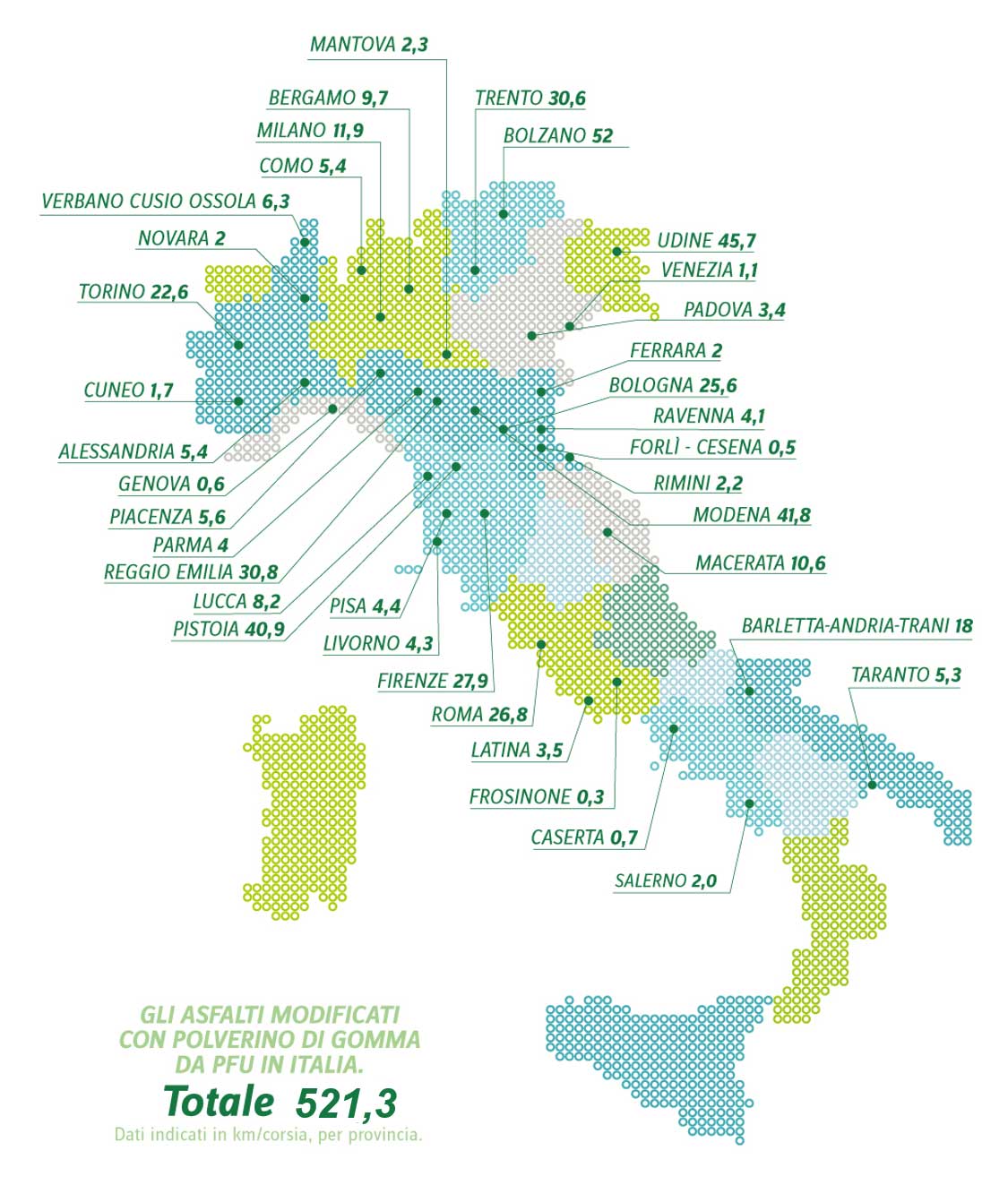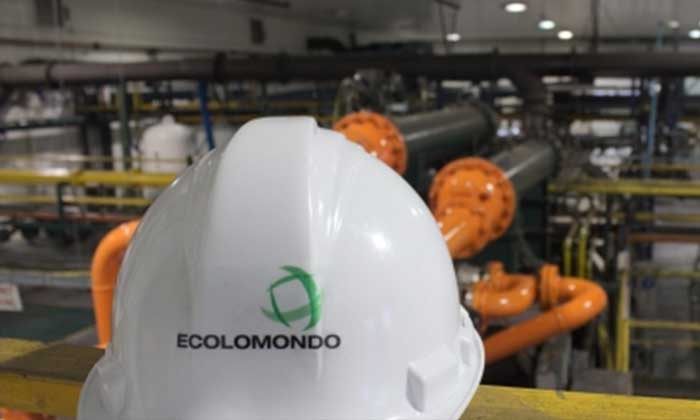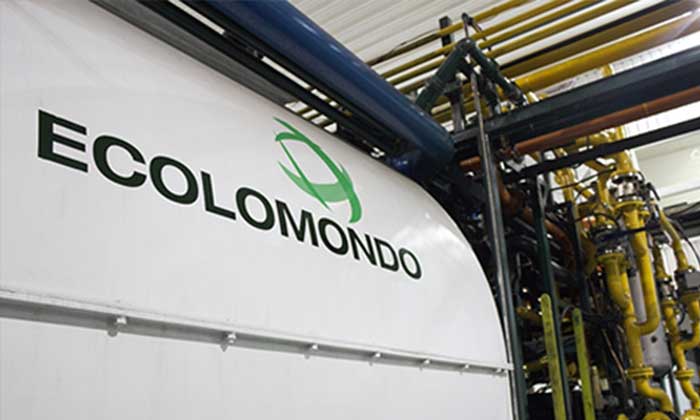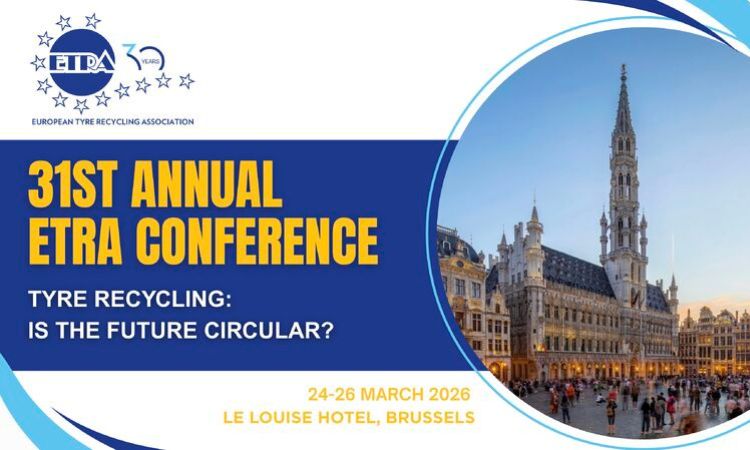Recycled tires pave 600km of rubberized asphalt road in Italy
Ecopneus – Italy’s end-of-life tire management authority responsible for tire collection and recycling – reports that the use of crumb rubber modified asphalt is growing in the country. In 2020, Italy used 63% more end-of-life tires to pave its roads.
Speaking about benefits of rubberized asphalt, Ecopneus says it resists potholes, lasts 3 times longer than traditional asphalt, reduces noise and maintenance costs and helps utilize valuable commodity – tire-derived crumb rubber – that otherwise would often end up in landfills.
According to the data provided by Ecopneus , in 2020 a total of about 600 km of Italy’s roads have been built using rubber modified asphalt from recycled tires. For illustration, this is a distance that could cover the journey from Rome to Milan.
Ecopneus pinpoints that asphalt modified with recycled tire rubber represent an innovative and advantageous solution, practiced for over 60 years all over the world. In Italy, the technology started finding more and more use: in fact, it has gone from just over 100 km in 2010 to a total of 600 km at the end of 2020, with an increase of 63% compared to 2019. Ecopneus says that 42 provinces of Italy have chosen to rely on this valid technology: Emilia-Romagna, Tuscany, Piedmont and Trentino Alto-Adige. Today, these are the regions with the most significant experience of use of rubberized asphalt from recycled end-of-life tires.

Mid-2020 progress with paving rubberized asphalt roads from end-of-life tires in Italy | Graphics by Ecopneus.
A positive trend and confirmation of the maturity of the sector, especially if we look at the last year where the difficulties and restrictions related to the Covid-19 pandemic have recorded a general contraction in most sectors.
In fact, asphalts modified with recycled rubber currently represent one of the most interesting solutions for public administrations and authorities managing Italian roads as it allows them to better invest the economic resources for road infrastructure, while reducing inconvenience for drivers and travelers. The environmental impact of the construction activity and the costs related to road maintenance are, as described above, also very beneficial.
"The results achieved encourage us to continue using this material,” – said the General Manager of Ecopneus Giovanni Corbetta. “At Ecopneus, we worked hard over the years to spread greater knowledge on this valid application of recycled rubber, we have activated and supported several scientific studies and initiatives, such as the EU co-funded Life Nereide project. For 2021 we hope for an ever wider diffusion of this technology also thanks to the entry into force of the new End of Waste decree which will provide an important support to increase the quality of materials recycled from ELTs. Many important national companies are also increasingly attentive to this technology."
The use of recycled rubber powder from end-of-life tires makes it possible to create asphalt capable of combining high-level mechanical performance with positive effects for the community in terms of noise reduction and environmental sustainability, thanks to the use of rubber from recycled tires. Precisely for these reasons, the initiative in the Pavese area received funding from Cassa Depositi e Prestiti , which recognized the technological and environmental value of this solution.
Press release by Ecopneus.
Weibold is an international consulting company specializing exclusively in end-of-life tire recycling and pyrolysis. Since 1999, we have helped companies grow and build profitable businesses.









